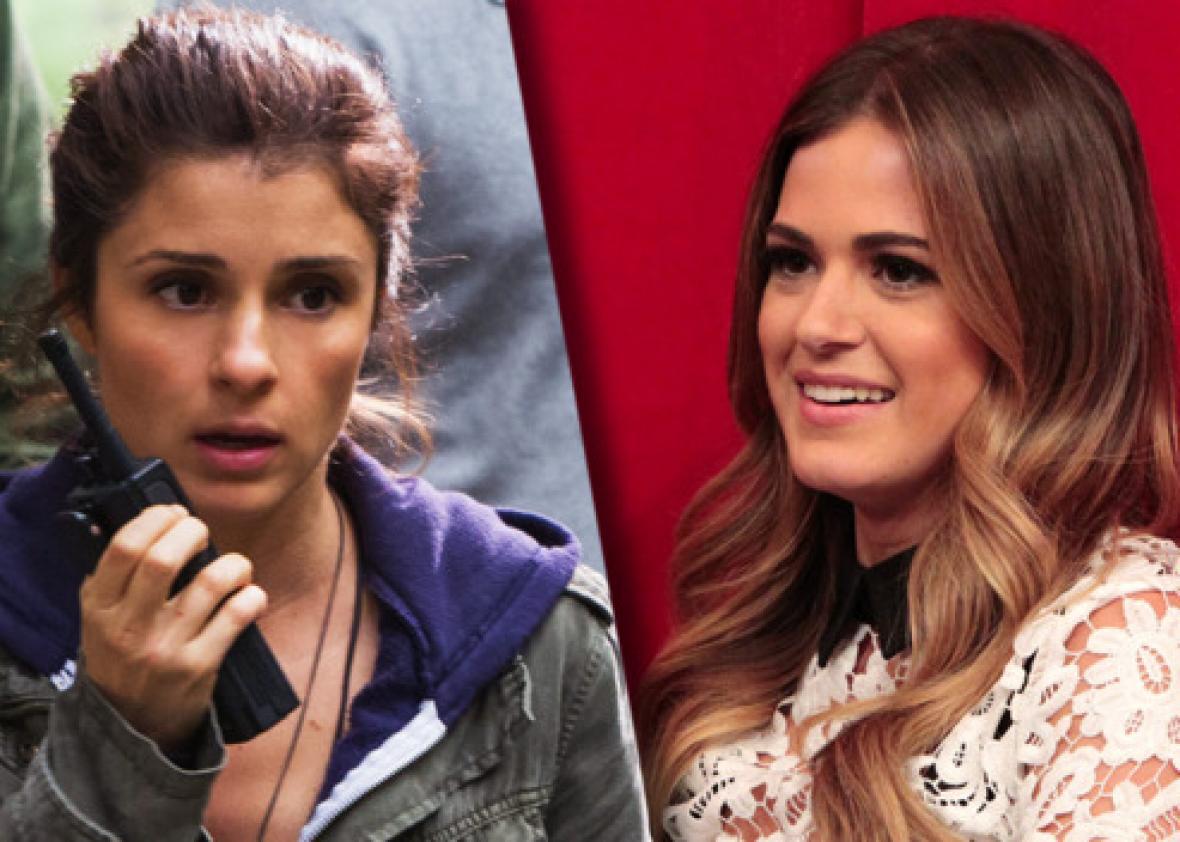This article originally appeared in Vulture.
Watching The Bachelor (or its currently airing companion, The Bachelorette) has always been akin to being a religious believer. Even for the most faithful, there’s bound to be some doubt time and again. Do they even like each other? Did a producer make her keep that guy around? How much of this is real?
The thrilling thing about watching Lifetime’sUnReal is that you can come back to The Bachelor or Bachelorette and feel newly confirmed in your faith—there is a higher power, he or she is a producer, and they are controlling almost everything. Or, as Quinn asks Rachel in UnReal’s Season 2 premiere as Rachel takes her first crack at executive producing, “So how do you like puppeteering?” To which Rachel replies, “Are you kidding me? I feel like God!”
UnReal, Lifetime’s behind-the-scenes series about an imaginary Bachelor-esque show (called Everlasting), swings the camera’s eye beyond the usual glistening, soft-focus reality set, pulling back literally and metaphorically to reveal the series’ surrounding infrastructure. People run around hosing down the driveway, producers in the control room slap labels under each contestant’s photo (villain, wifey, racist), and the lead characters, Rachel and her boss Quinn, stride through the whole mess yelling and tweaking and creating havoc.
UnReal is fiction. It’s not a behind-the-scenes show about the actual Bachelor. It’s a heightened version of that idea, operating on a more time-limited production schedule and presenting a more melodramatic story than an actual backstage would be. But like all great fiction, there is an unmistakable thrumming foundation of truth, bolstered no doubt by creator and showrunner Sarah Gertrude Shapiro’s past as a Bachelor producer. Thanks in large part to Shapiro’s experience, UnReal undercuts our ideas of what The Bachelor and Bachelorette are: They’re not fairy-tale love stories, they’re not beautiful journeys together, and they’re definitely not real love. They’re entertainment, made from manufactured scenes that are shredded into secondslong clips and re-edited into a coherent story. We should scoff at them, UnReal suggests. We should turn our backs on that cesspit of amorally constructed garbage and save our own souls and the souls of everyone involved.
Except. And I’m not saying UnReal is wrong about its argument, because of course it’s not, but—watching The Bachelor and Bachelorette after watching UnReal is utterly addicting. They are a programming pair made in heaven. To return to my religion metaphor, it’s like sitting down to look at the Sistine Chapel, but now you have an idea of what God’s director commentary track might sound like. (“Of course that single finger Creation of Adam stuff is dumb, but I told Michelangelo people would Eat. It. Up.”) The very thing that makes The Bachelor work—how well-hidden the strings are, that perpetual doubt about what is real, the knowledge that what we’re seeing is only the tip of the production iceberg—makes us thirsty for the perspective UnReal provides. And, with the memory of Quinn yelling “be a good meat puppet and do what I say!,” moments from The Bachelorette that do give us a peek behind the curtain begin to hint at bigger, more complicated stories outside the contestant hijinks and true-love fairy tales.
Take the first two episodes of this season of Bachelorette. In the premiere, there’s a sequence where JoJo’s sitting in a carefully staged solo interview setup, recording a talking-head segment. In the middle of some chitchat about how the night’s going, the camera swings upward out of the tightly framed shot of her face to show one of the contestants drunkenly charging into the room to offer her a glass of water. He leaves, and then it happens again, as another inebriated suitor comes in search of her rather than waiting for his producer-initiated interaction. This time, we get a side-angle shot of JoJo’s interview setup, complete with a giant light and a producer’s knees. This is a standard first episode edit—the men are all drunk and misbehaving!—but the subtext is that the men are all drunk and sloppily violating the basic boundaries of production space.
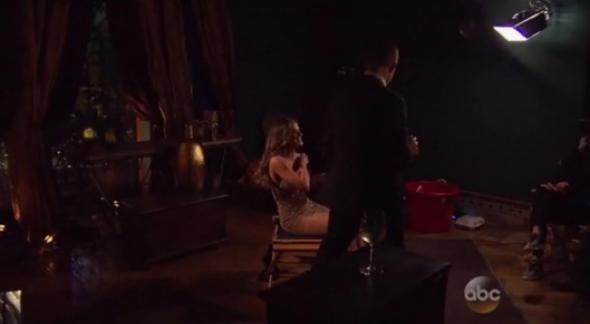
ABC
In the second episode, early-season villain Chad waits for JoJo outside the mansion before anyone else can speak with her and then interrupts her conversations with other contestants twice. While I do not wish to denigrate the patent genius of Chad’s assholery, careful UnReal-shaded eyes can catch the shadowy outlines of producers lurking around in the background of his histrionics. It’s impossible not to think—which producer egged him on?
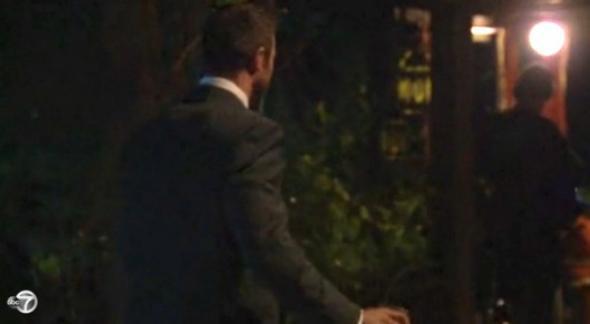
ABC
To the extent that it can do so while still maintaining its sheen of impenetrability, The Bachelor and Bachelorette seem to understand and encourage our love of this phenomenological detective work. The very rarity of those shots where the production apparatus breaks through to the surface is what makes them tantalizing. Weeks go by with only scraps of visible camera or obvious producer intervention, but every so often you’ll get a few moments like the ones that happened on Kaitlyn’s season of The Bachelorette. In it, Kaitlyn breaks the unspoken “rules” of Bachelorette conduct by sleeping with contestant Nick long before the approved, highly orchestrated Fantasy Suites date—something she appears to regret the morning after.
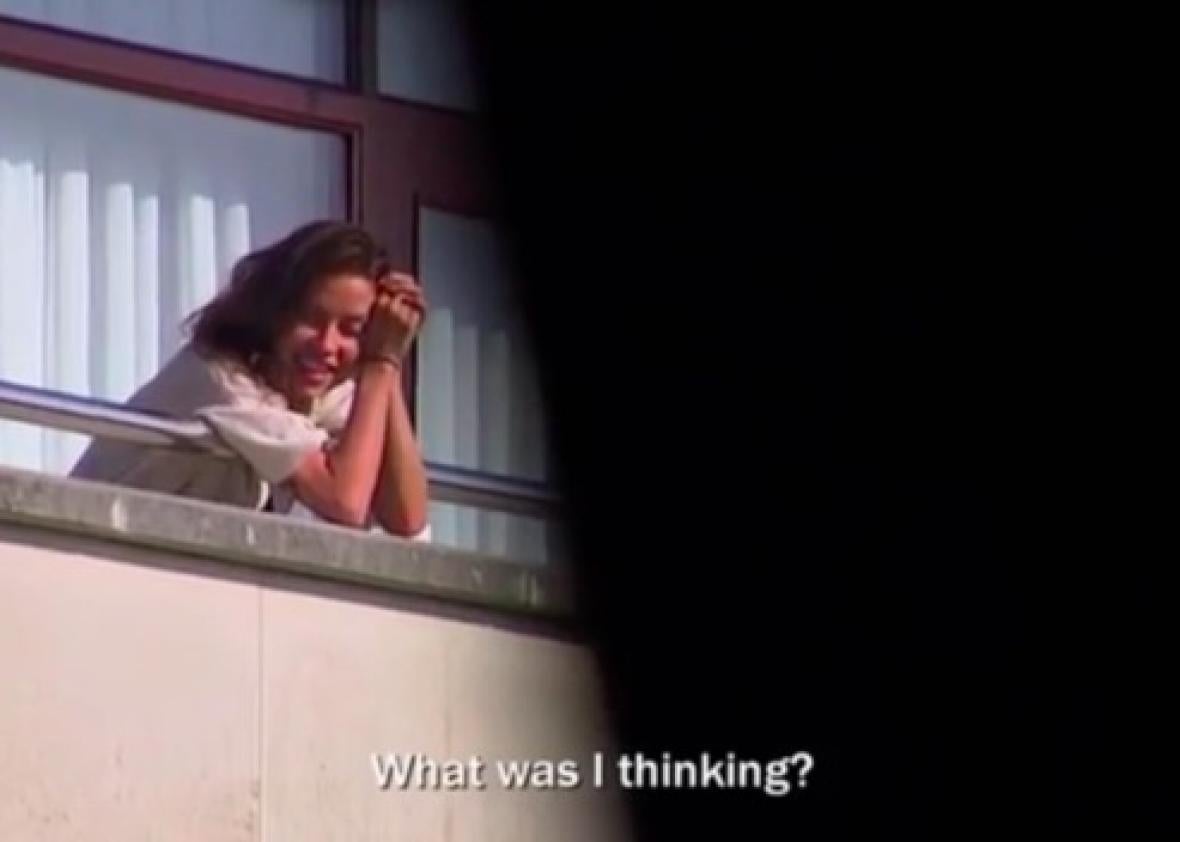
ABC
We know this because she later says as much in a standard Bachelorette talking-head segment, but we feel secure in our knowledge because there’s footage, shot illicitly from behind some huge barrier, of Kaitlyn speaking with an unseen producer. “I shouldn’t have—ahhhhh,” she says, more incoherently than is usually edited on this show. “All of it is bad.” This sequence, with Kaitlyn leaning casually over a balcony in almost unprecedented levels of bachelorette informality, hair and makeup undone, is significantly more intimate than the sly, behind-closed-doors edit of her night with Nick. Even more deliciously, this breach of conduct ripples through the contestant pool, leading to a remarkable scene where wounded suitor Shawn pours his frustrated heart out to an on-screen producer. Shot from many yards away, around corners and through several transparent barriers, we watch as Shawn crumbles in front of this nameless man. “I trust you more than anybody here. Man to man, guy to guy, friend to friend, you’re telling me she’d rather have Jared than me?” he asks, referring to a fellow Bachelorette contestant.
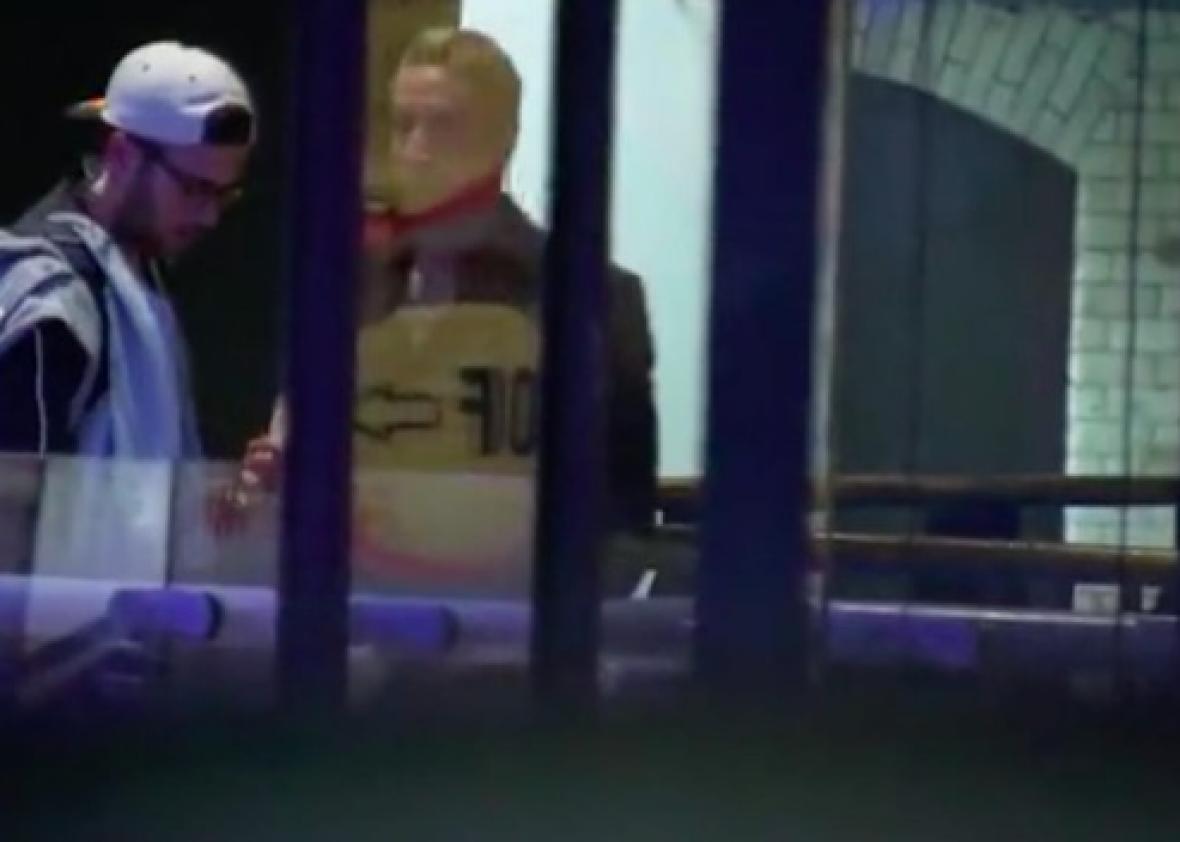
ABC
The Bachelor and Bachelorette are hardly the only reality series to show a little of that delicious visible production ankle. They’re not even the most revealing—if producer agency made obvious is something you love watching, you cannot miss the later seasons of Teen Mom OG, where producers appear on screen openly questioning participants’ motivations, asking them to clarify relationships, and throwing shade on their choices. But where Teen Mom OG candidly pulls back the curtain of its own production, The Bachelor and Bachelorette are more pleasurable for their constant ontological uncertainty. The glossy image presented to the Bachelorette audience is fake—but which parts? Sure, that woman opening up about her dead parent on the very first night has been prompted by production staff … but it seems like Sean and Catherine really love each other? How did that happen?
The other thing that lies underneath UnReal and The Bachelor alike, fueling this constant invitation for close reading, is the subject matter. Ultimately, even in “real” life, the question of whether or not someone is in love with you is defined by frustrating opacities, overexamined text messages, and poorly overheard conversations. In this respect, even the most manufactured scenes in The Bachelor are not that different from the problem of relationships everywhere. And so these brief interruptions from the God-like controllers give us access to a hidden knowledge we’re always looking for, in reality TV and in life, and another angle from which to ask ourselves what is really “real.”
In the Season 2 premiere of UnReal, things go awry in filming, and the female contestants eye each other nervously. “Is this part of it?” one of them asks. “Probably,” another answers. There’s no way to know, but we do love asking the question.
See also: A Brief Primer on B.J. Britt, the Actor Playing UnReal’s New Suitor
